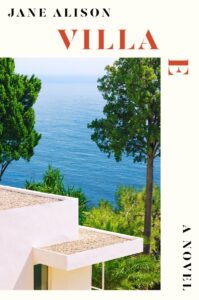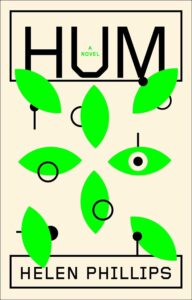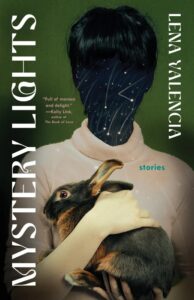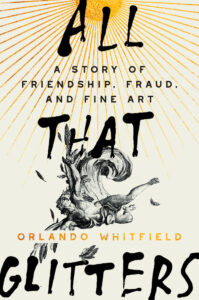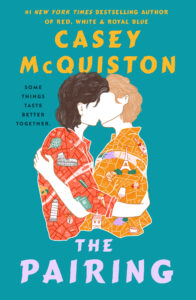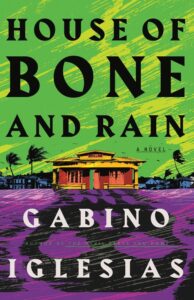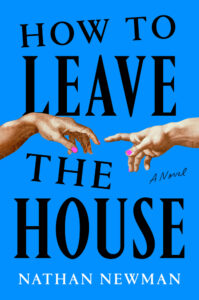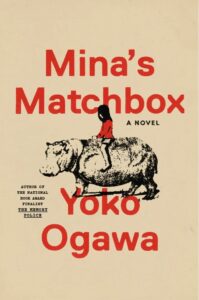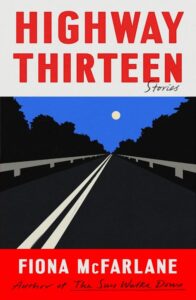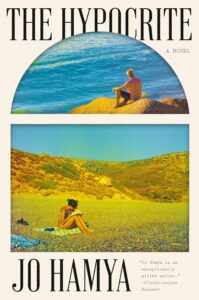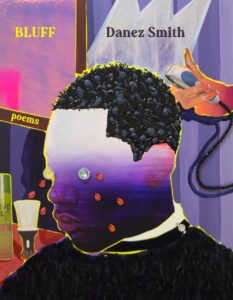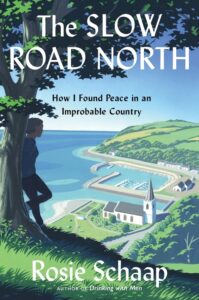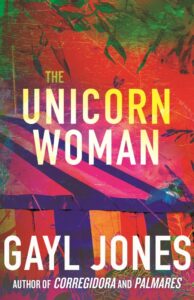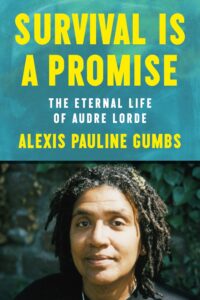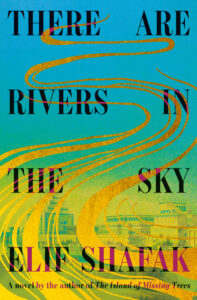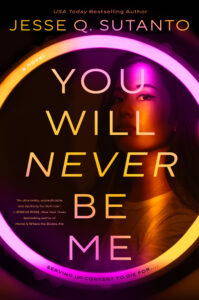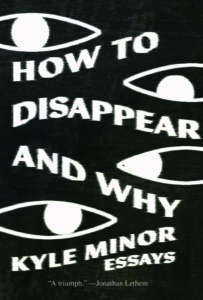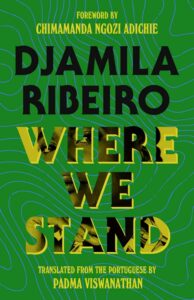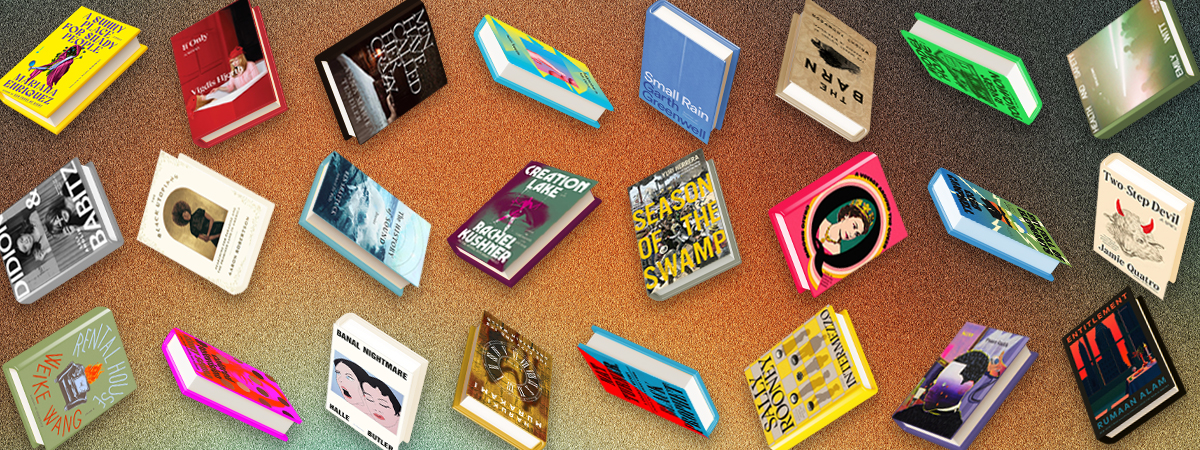
Lit Hub’s Most Anticipated Books of 2024, Part Two
193 Books to Read in the Second Half of the Year
August
Jane Alison, Villa E
Liveright, August 6
As previously recommended: The latest novel from Alison, author of, most recently, the excellent craft book Meander, Spiral, Explode, is itself a kind of spiral, as two aging artists (based on Irish designer Eileen Gray and Swiss architect Le Corbusier) circle around the past, and the single villa—with its spiral staircase—that has been at the center of their conflict for thirty years. But aside from the historical anecdote itself (once described as an “act of naked phallocracy”), the most interesting aspect of the book is the way Alison represents these two different consciousnesses on the page—their slipstream thoughts, both recursive and immediate, but each distinct, pinning their bodies in space. –ET
Helen Phillips, Hum
S&S/Marysue Rucci Books, August 6
If you want to know what the near future looks like, pick up any Helen Phillips novel. Her books straddle the concerns of contemporary life with those of a future wrapped up with the pervasive nature of technology, disastrous climate change, and our increasing curiosity with AI. In Hum (which refers to the intelligent robots that populate the novel), May loses her job to AI. To lessen her family’s debt, she becomes a guinea pig in an experiment that alters her face so it can’t be recognized by surveillance. The family comes together for three nights inside the rare and beautiful “Botanical Garden” but the caveat is that they all have to leave their devices as home. A smart page turner about “a world of both dystopian and utopian possibilities.” –EF
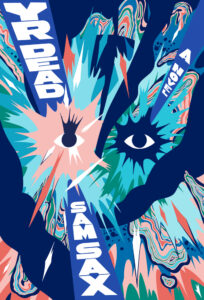
Sam Sax, Yr Dead
McSweeney’s, August 6
As previously recommended: Bildungsroman, anyone? Bildungsroman? This lyrical novel in fragments tells the story of a life from the vantage point of the narrator’s final moments. Ezra is a queer, Jewish person carrying out their last act of protest. While they experience their last moments, they also experience their entire life as their memories spill out before them. From diaspora and desire to history and generational trauma, Yr Dead earnestly explores the things that make us human and alive while the story rushes headlong into death. –McKayla Coyle, Publishing Coordinator
Lena Valencia, Mystery Lights
Tin House, August 6
Strange stories “at the crossroads of mundane daily life and existential dread”? Who among us hasn’t waited at that exact intersection in these troubling and eerie times—and Lena Valencia’s work delivers exactly the right dose of Lynch-meets-Link for this moment. –DB
Orlando Whitfield, All That Glitters: A Story of Friendship, Fraud, and Fine Art
Pantheon, August 6
There’s no subculture more fascinatingly chaotic than the art world, with its incomprehensible swings, brilliant (or hackneyed) schemes, multimillion-dollar trends, and floor-to-ceiling personalities, both in the studios and in the galleries. This book by Orlando Whitfield—whose bio on the back identifies him as “a failed art dealer”—gets into all that through the story of Whitfield’s friend and one-time business partner Inigo Philbrick, who would become part of the biggest art fraud in US history. Irresistible. –ET
Casey McQuiston, The Pairing
St. Martin’s, August 6
It wouldn’t be summer without a big romance novel and McQuiston, blockbuster author of One Last Stop and Red White & Royal Blue, is here to deliver the chaotic bisexual European romp we all deeply need. Two exes end up on the same food & wine tour across the continent and challenge each other to a hookup competition (while maybe secretly still pining for one another)? Come on. –DB
Gabino Iglesias, House of Bone and Rain
Mulholland, August 6
As previously recommended: Five teenage boys set out to get revenge on the biggest gang in Puerto Rico after one of their mothers is murdered—just in time for a massive hurricane to sweep down onto the island. Trust Gabino Iglesias to deliver pulse-pounding scares, unflinchingly bloody violence, and achingly beautiful moments of friendship and humanity. –DB
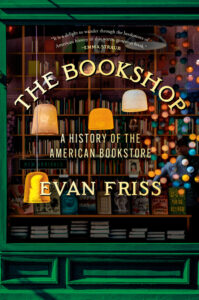
Evan Friss, The Bookshop
Viking, August 6
Chances are, if you’ve found yourself on this site, then this book is for you: an attentive and thoughtful study of the bookshop and its long, storied history. The Bookshop reaches into the depths of the past and illuminates this worthy subject with archival research, oral histories, interviews with booksellers, and more. Evan Friss is the companionable guide we all deserve on this trip to bookstores throughout time, offering a treasure trove of information and anecdotes, and bittersweetly reminding us all how important these institutions are, how necessary to our culture and communities and how we must do everything in our power to protect them. Head straight to your local independent bookstore to support the cause, or pick it up on Bookshop! –JH
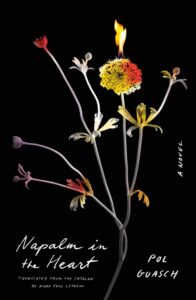
Pol Cuasch, tr. Mara Faye Lethem, Napalm in the Heart
FSG, August 13
Not to be a simp, but I’ll read anything that Catherine Lacey (Biography of X, Pew) recommends. If she says Pol Cuasch is “one of the best young writers working today,” then I believe her! Napalm is about a war-torn, apocalyptic near future. The story follows a young man living with his traumatized mother who must leave home and trek into danger to find his lover. I’m not always a fan of apocalypse lit, but I love queer stories and messy mother stories and this book is both so I’m about it. Sometimes you need a little emotional devastation, as a treat. –MC
Nathan Newman, How to Leave the House
Viking, August 13
Sometimes what you really need is a full-on caper—what happens, for instance, when the day before leaving home at last for university, an aspiring artist called Natwest finds that an important package (a sensitive package) has gone missing at the post office—the box swapped with one belonging to his mother’s boss. As Natwest seeks his special item, the novel collects a series of idiosyncratic characters, whose lives and loves and thoughts about art build to a hilarious cacophony not unlike our own. –ET
Yoko Ogawa, tr. Stephen Snyder, Mina’s Matchbox
Knopf, August 13
If you loved The Memory Police, you’ll be excited for Ogawa’s “hypnotic, introspective novel” about twelve-year-old Tomoko, who visits her wealthy Aunt’s home (featuring dozens of rooms, German furniture, and a pygmy hippopotamus) in a Japanese coastal town. Tomoko and her cousin Mina decipher the world around them: the family’s strange dynamics, her uncle’s absences, her aunt’s misery, and her great-aunt’s experience of the Second World War, in a coming of age story that’s sure to be transformative. –EF
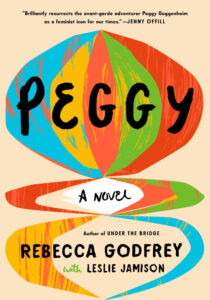
Rebecca Godfrey, with Leslie Jamison, Peggy
Random House, August 13
Leslie Jamison was recently called upon to do one of the most rare and remarkable things a friend can do: when her friend, the author Rebecca Godfrey, was diagnosed with cancer, Godfrey asked Jamison to finish her novel in case of her death. Jamison wrote a gorgeous and moving piece for the New Yorker detailing this work, this supreme act of love as a ghostwriter, what it was to take on her deceased friend’s work and mind and voice. The result is Peggy: a story about the daughter and heiress to the Guggenheim fortune and her artistic and romantic exploits, and her quest to find her own direction and vision despite the pull and sway of her family name. Pick it up for the high society family dramas, for the coming-of-age antics, for the preening and prestigious art world depictions, or for the beauty of the writing itself, the two minds that came together to produce this work of exploration, intrigue, and self-discovery. –JH
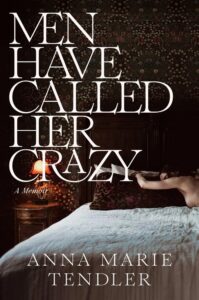
Anna Marie Tendler, Men Have Called Her Crazy
Simon & Schuster, August 13
When Anna Marie Tendler first announced she’d be writing a memoir, it was met with a flurry of excitement and interest from many, more than a few of whom I would imagine were rabid for gossip about a certain comedian. As a PSA: this book contains absolutely no mention of Tendler’s ex-husband. Having no understanding of what a celebrity divorce must entail, I can only imagine there are some pretty air-tight NDAs involved and this book is a clear consequence. Muckrakers can now know to seek scandal elsewhere, but those who are interested in a clear-eyed portrayal of mental health and eating disorders and emotional trauma will be rewarded: Tendler is an admirable narrator through such tough topics, blunt about the past but gentle about the present, and hopeful, ever hopeful, about the future. –JH
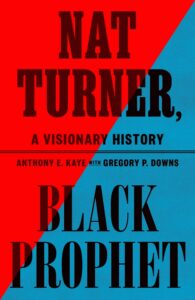
Anthony E. Kaye, with Gregory P. Downs, Nat Turner, Black Prophet
FSG, August 13
Billed as the most definitive account yet of Nat Turner’s 1831 slave rebellion, the late historian Anthony E. Kaye focuses here on the visionary, spiritual side of Turner’s call to arms (he was an enslaved preacher, after all), placing his life in the context of 19th-century Methodism and its integrated spaces. Turner’s divine visions—and the violence they inspired—would change the American South for generations.–JD
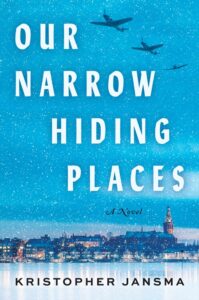
Kristopher Jansma, Our Narrow Hiding Places
Ecco, August 13
With his earlier novels Jansma has proven himself to be a delightful storyteller (or rather, at least, aware of the need to delight the reader, even amidst heavier subject matter), and has always been able to balance humor with substance. As a novelist, these are invaluable instincts, regardless of subject matter, but should come in particularly handy with Jansma’s latest, the story of a family coming to terms with its matriarch’s brutal experiences during the Second World War, and how they would shape the lives of generations to come. –JD
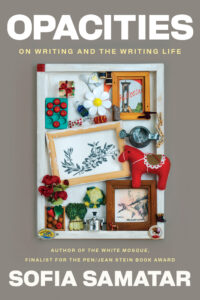
Sofia Samatar, Opacities: On Writing and the Writing Life
Soft Skull, August 13
Author of The White Mosque Sofia Samatar returns with Opacities to deliver a wide-ranging, epistolary collection on writing, identity and friendship. Samatar uses the medium of letters between her and a friend to reclaim the intimacy of writing, recognizing the care and exploration and genuine discovery that can be rooted in that act. Samatar and her friend discuss their literary idols, their publishing fears, the tendency to feel ingenuine when producing in the literary world, and circles the question of how to remain true to one’s voice within these complicated circumstances. A unique exploration of craft and authenticity, Opacities offers its wisdom through these perennial questions and answers. –JH
Fiona McFarlane, Highway Thirteen
FSG, August 13
A linked story collection about a serial killer—following families, victims, podcasters and more. I’m always a sucker for linked short stories and I’m excited to see a new take on our culture’s obsession with true crime. –DB
Jo Hamya, The Hypocrite
Pantheon, August 13
As previously recommended: I was instantly pulled in by the ingenious structure of this novel: a famous novelist, lately getting flak for being Old and White and Male, sits down in a theater to watch a play written by his daughter Sophia, which he soon realizes is based on a vacation the two of them took when she was a teenager. Meanwhile, Sophia, the playwright, has dinner with her mother, who is recounting the months she cared for her ex-husband after lockdown. In between, we get pieces of the play itself and of Sophia’s actual memories of that vacation, as all the various strands braid into a fraught, compelling conversation, not just between parents and children, but between generations, and even between modes of art and understanding. –ET
Danez Smith, Bluff
Graywolf, August 20
Few poets land more vibrantly and playfully on the page than Danez Smith and their latest might be their most audacious yet, full of not just poetry but mixed media as well a la Claudia Rankine. If anybody can figure out how to celebrate life in a society that devalues it at every turn, I bet on Smith. –DB
Rosie Schaap, The Slow Road North: How I Found Peace in an Improbable Country
Mariner Books, August 20
In the span of thirteen months, food and drink writer Rosie Schaap’s husband and mother died. In the wake of her grief, she visits Ireland on assignment and feels—something. Something lovely and warm and inviting (a feeling that rings very true, to someone who also by accident spent many years living in that country) and then decides to move there. She ends up in Glenarm, a small village in Northern Ireland, and in chronicling her life perfectly describes her grief and (literal) moving on after loss. This is a beautiful memoir with gorgeous descriptions of the countryside, the locals, and the complex emotions that come from devastating loss. –EF
Gayl Jones, The Unicorn Woman
Beacon Press, August 20
Gayl Jones, a 1970s literary wunderkind whose first novel, Corregidora, was edited by Toni Morrison (“no novel about any black woman could ever be the same after this,” Morrison said of the debut) and praised by James Baldwin, burst back onto the scene in 2021 after a twenty-two-year absence. In the three years since, Jones has been named a finalist for both the National Book Award and the Pulitzer Prize. Her new novel, The Unicorn Woman, is the story of Buddy Ray Guy, a Black WWII veteran and “true self-educated intellectual” who returns to the grim world of the Jim Crow South in search of meaning. –DS
Alexis Pauline Gumbs, Survival is a Promise: The Eternal Life of Audre Lorde
FSG, August 20
I mentioned this book in the first-half anticipated list and I’ve now had a look at the galley—and holy cats, folks. Gumbs, one of our great poets, has delivered not only a masterful biography of Audre Lorde but a revolution in what a biography can be. Whether you only know Lorde through her most famous quotes or if you’ve read everything she wrote a thousand times, there is something new and exciting here for you. Structurally playful, deeply researched, vibrantly felt, it’s a masterwork all around. –DB
Elif Shafak, There Are Rivers in the Sky
Knopf, August 20
As previously recommended: Shafak’s latest is a sweeping, historical novel about three characters whose lives are entwined by the epic of Gilgamesh. Moving from the 19th century to the present, from the River Thames to the River Tigris, this novel is both expansive and tender. Exploring love, memory, healing, and change, There Are Rivers in the Sky is an enthralling novel by the internationally bestselling Elif Shafak. –MC
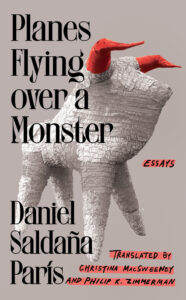
Daniel Saldaña París, tr. Christina MacSweeney & Philip K. Zimmerman, Planes Flying Over a Monster
Catapult, August 20
I love reading about a person’s interaction with a city—we all experience them differently, at different times in our lives, etc—and this collection of nine essays about different cities Saldaña París has lived in (and the lives he has lived within them) is right up my alley. Plus, that title and that cover, it all just screams READ ME! –DB
Jesse Q. Sutanto, You Will Never Be Me
Berkley, August 20
Everything that Jesse Q. Sutanto turns her hand to is gold, and You Will Never Be Me is no exception. In this vicious psychological thriller, two influencers face off against one another in a battle for the ages. Meredith and Aspen are friends-turned-bitter rivals, their laundry list of resentments eclipsing their once-powerful bond. When one goes missing, the other falls under suspicion, but there’s plenty of twists and turns before we find out what’s really going on. –MO
Kyle Minor, How to Disappear and Why: Essays
Sarabande Books, August 27
I’ve been reading Kyle Minor’s short fiction for decades. When I worked in literary magazines his name was always cropping up on the TOC of the best and most interesting publications. Praying Drunk, his last collection of stories, was a (great) sad book about very sad people. His new collection of nonfiction stays on theme and centers on the concept of disappearance. From “Ghosts (think Shakespeare and The Sixth Sense), lost temples, and professional erasure to strategic exile, these essays dig deep into the cultural and historical archives of our civilization.” –EF
Djamila Ribeiro, tr. Padma Viswanathan, Where We Stand
Yale University Press, August 27
Part theory, part manifesto, part history of Black feminist thought, Djamila Ribeiro’s hugely popular take on racial and gender identity in Brazil—translated by Padma Viswanathan—has the makings of a truly modern feminist classic.–JD
Emily Temple
Emily Temple is the managing editor at Lit Hub. Her first novel, The Lightness, was published by William Morrow/HarperCollins in June 2020. You can buy it here.









